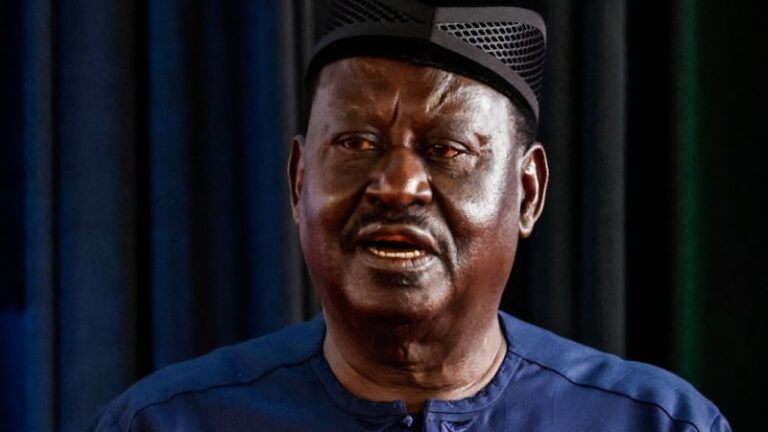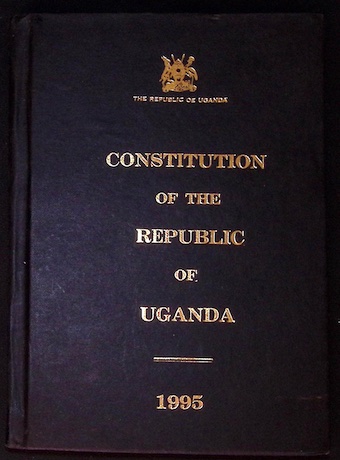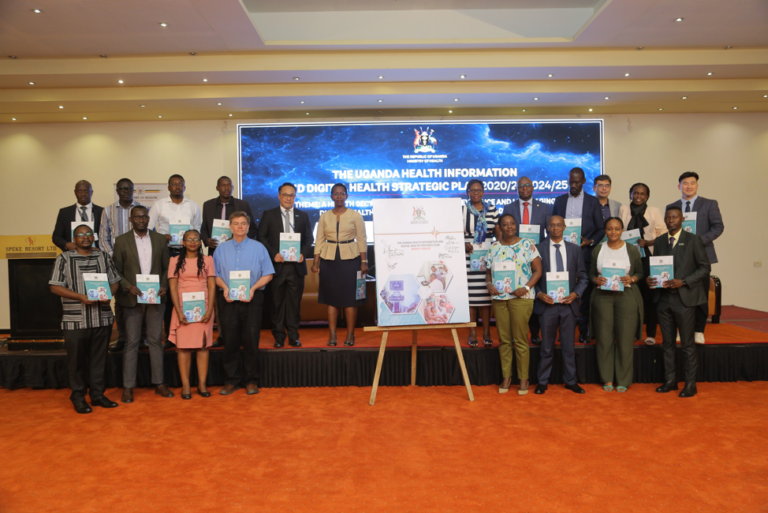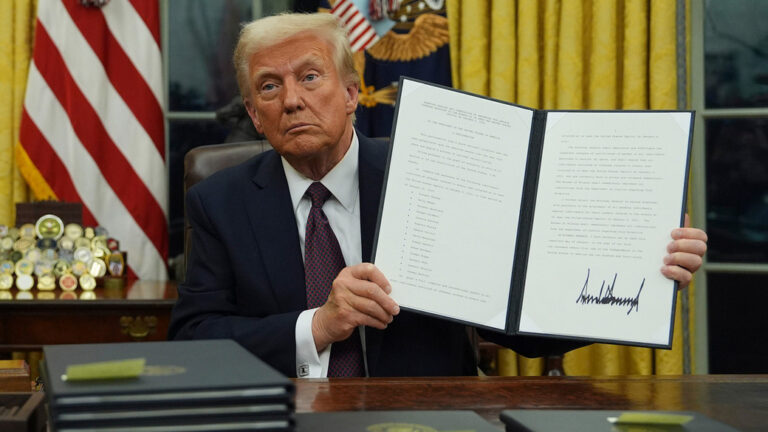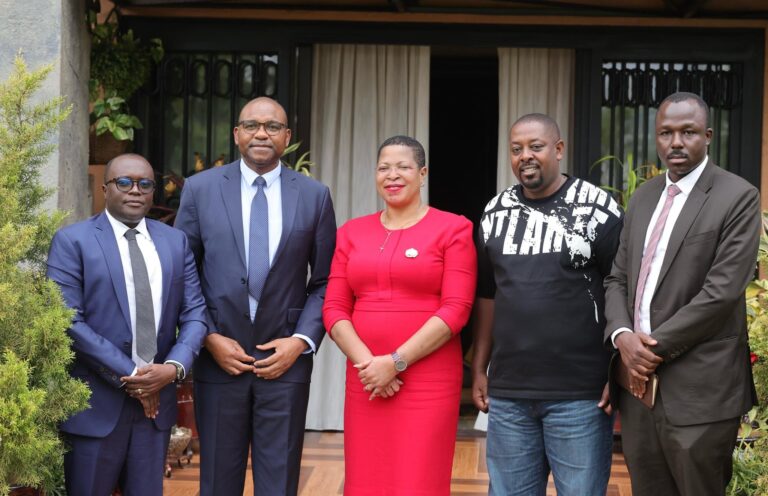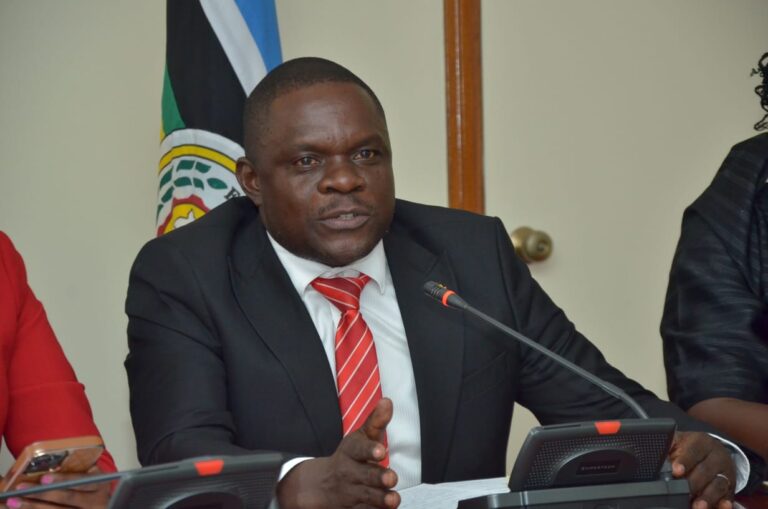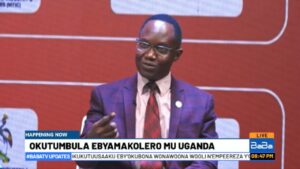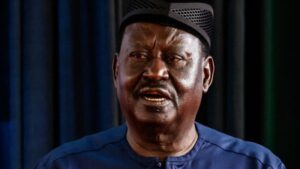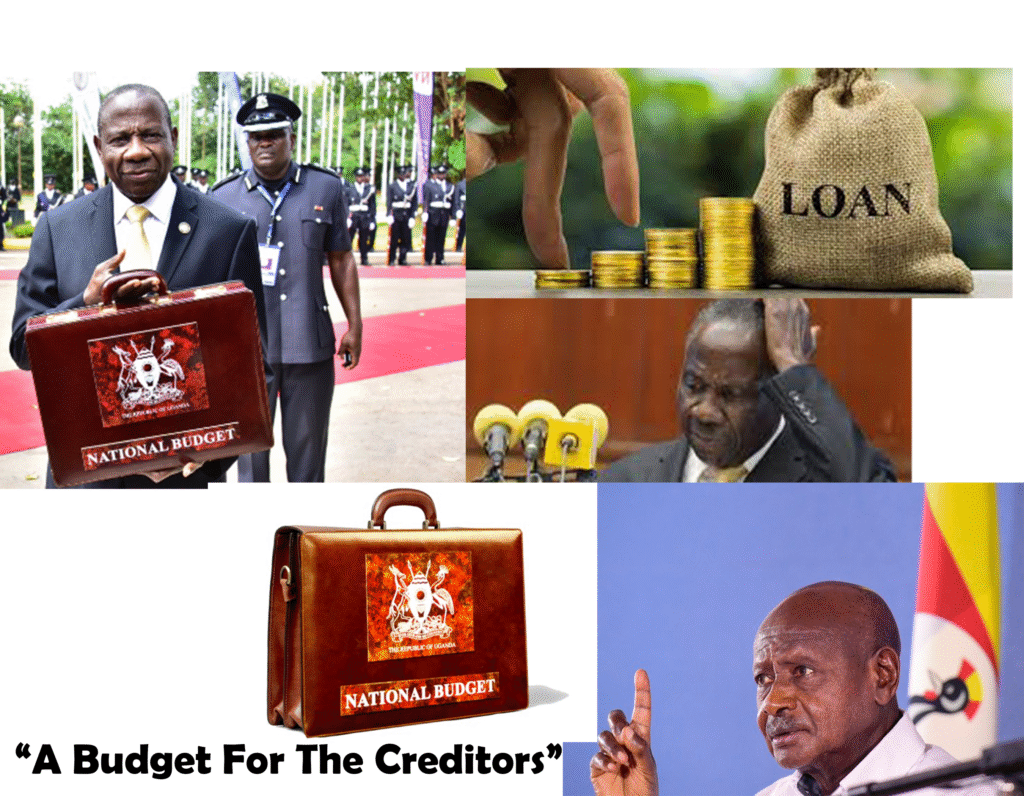
By :Bakinyumya Douglas Paapa Ov Uganda (Political TV Producer and TV Host – @BDouglasPaapa
When Finance Minister Matia Kasaija unveiled the 2025/2026 national budget, Ugandans anticipated hope, solutions, and a plan to confront the country’s economic challenges. Instead, what they received was a sobering document: a budget primarily designed to service debts, not transform lives.
With a budget totaling UGX 72 trillion, over 70% of it is dedicated to debt repayment. Before a single coin reaches a hospital, school, farm, or road, it must first be sent abroad—to satisfy lenders and settle interest payments. Uganda’s national budget has become a fiscal burden rather than a blueprint for prosperity.
Borrowing to Breathe
The government’s new proposal to borrow €270 million from Afreximbank and another €230 million from the ECOBANK Development Bank of Southern Africa is alarming. We are borrowing money just to stay afloat—financing past debts instead of investing in future progress. While Minister Kasaija insists Uganda’s debt-to-GDP ratio of 46.86% is “sustainable,” this narrative ignores the reality: a cycle of dependency that threatens national sovereignty and economic independence.
Growth on Paper, Pain on the Ground
Yes, the economy reportedly grew by 6.7% in Q1, and the Ugandan shilling is ranked the most stable in Africa by the IMF. But these statistics mean little to ordinary Ugandans. Prices remain high. Wages remain low. Unemployment, especially among youth, continues to rise. There’s a widening gulf between government declarations and everyday experience. If citizens cannot feel this growth in their pockets and lives, then it is irrelevant.
A Budget that Ignores the People
Despite claims of focusing on agro-industrialization, tourism, mineral development, and science and technology, this budget does not prioritize citizens. Instead, it rewards a model of excessive borrowing and misplaced priorities. While the government dreams of expanding the economy tenfold from $50 billion to $500 billion in 16 years, it remains reluctant to invest in foundational sectors like agriculture, health, education, and infrastructure.
Misplaced Priorities, Missed Opportunities
This budget continues a dangerous tradition—promising development, while quietly financing consumption and inefficiency. Parliament’s repeated approval of massive loans raises concerns about fiscal responsibility. Uganda must abandon this path of short-term fixes and focus on building a sustainable economy fueled by productivity, not debt.
Conclusion: A Call for Fiscal Patriotism
Uganda cannot borrow its way to prosperity. A national budget must reflect the needs of its citizens—not the demands of foreign creditors. This is not just a financial issue—it is a moral and political crisis.
If the government truly believes in building a self-reliant, inclusive, and prosperous nation, it must stop mortgaging Uganda’s future for temporary relief. Let this be the turning point. Let this be the year Uganda places its people—not its lenders—at the center of national planning.
By :Bakinyumya Douglas Paapa Ov Uganda (Political TV Producer and TV Host – @BDouglasPaapa



